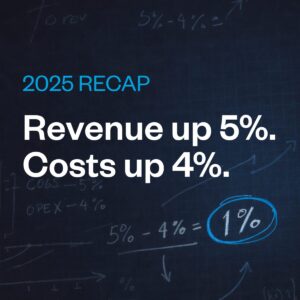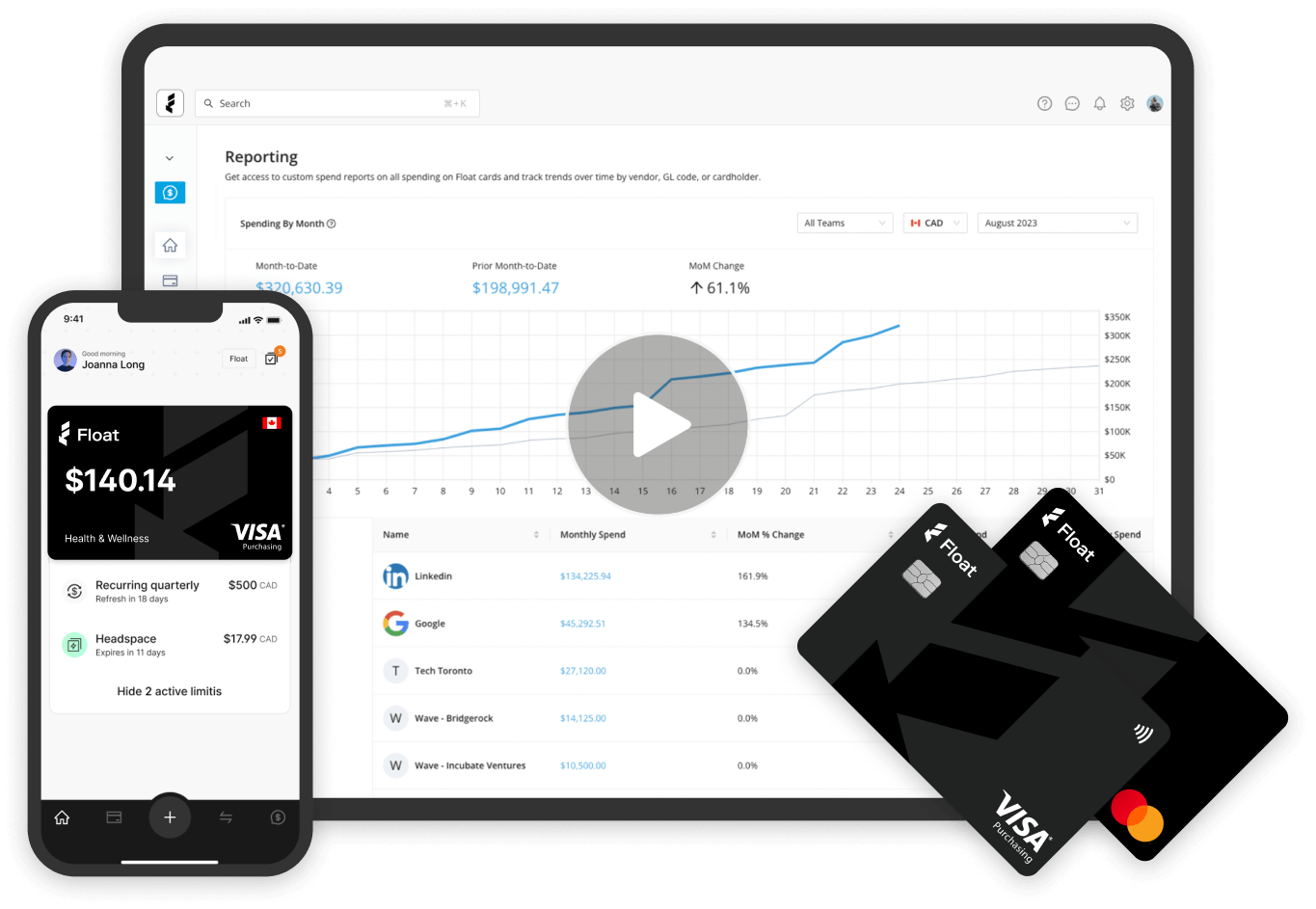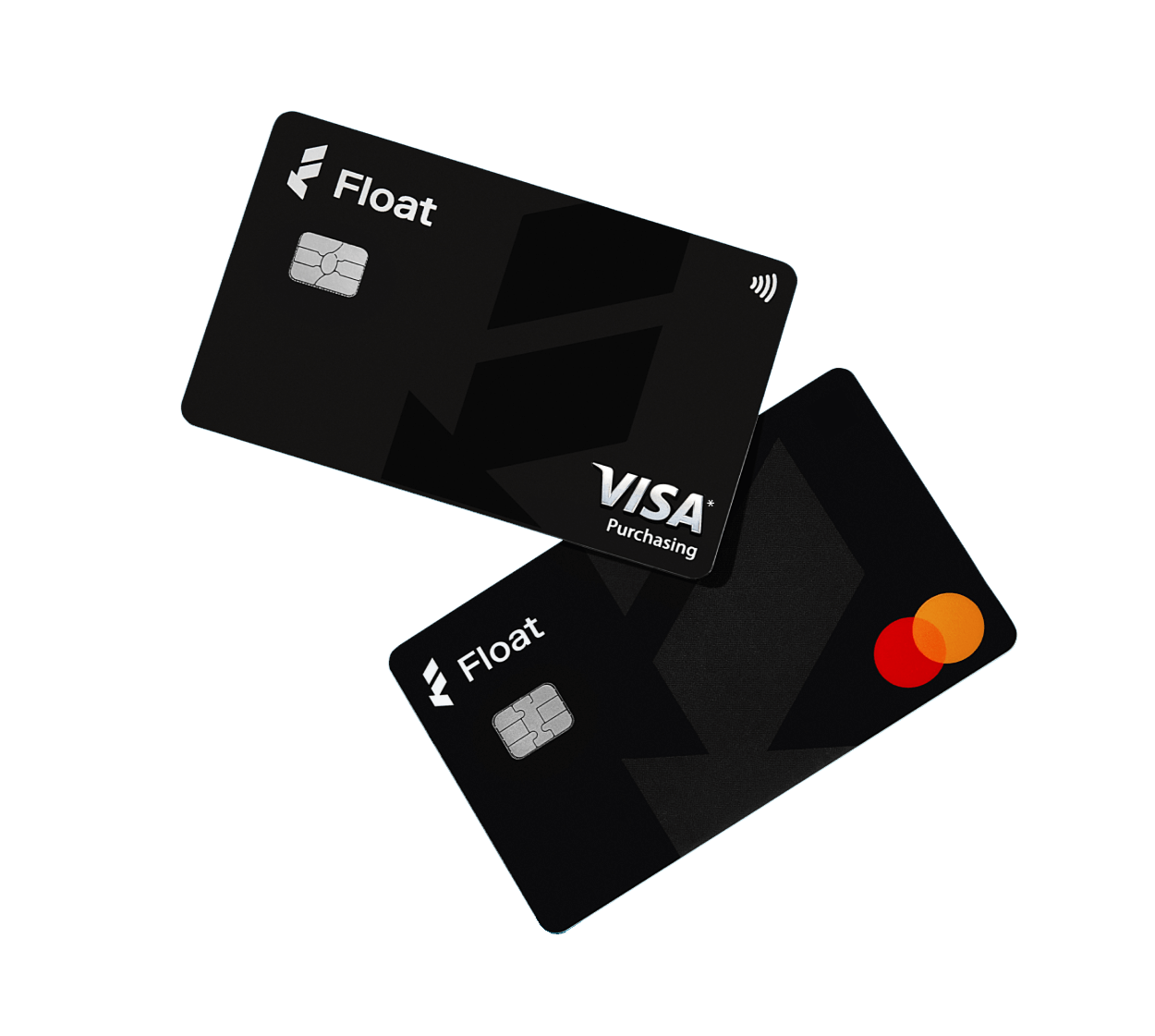Corporate Cards
What is a Fleet Card? Complete Canadian Business Guide 2026
Explore the best fuel cards for small businesses in Canada. Learn about the benefits of using fleet cards to save on fuel and vehicle maintenance costs.
November 14, 2025
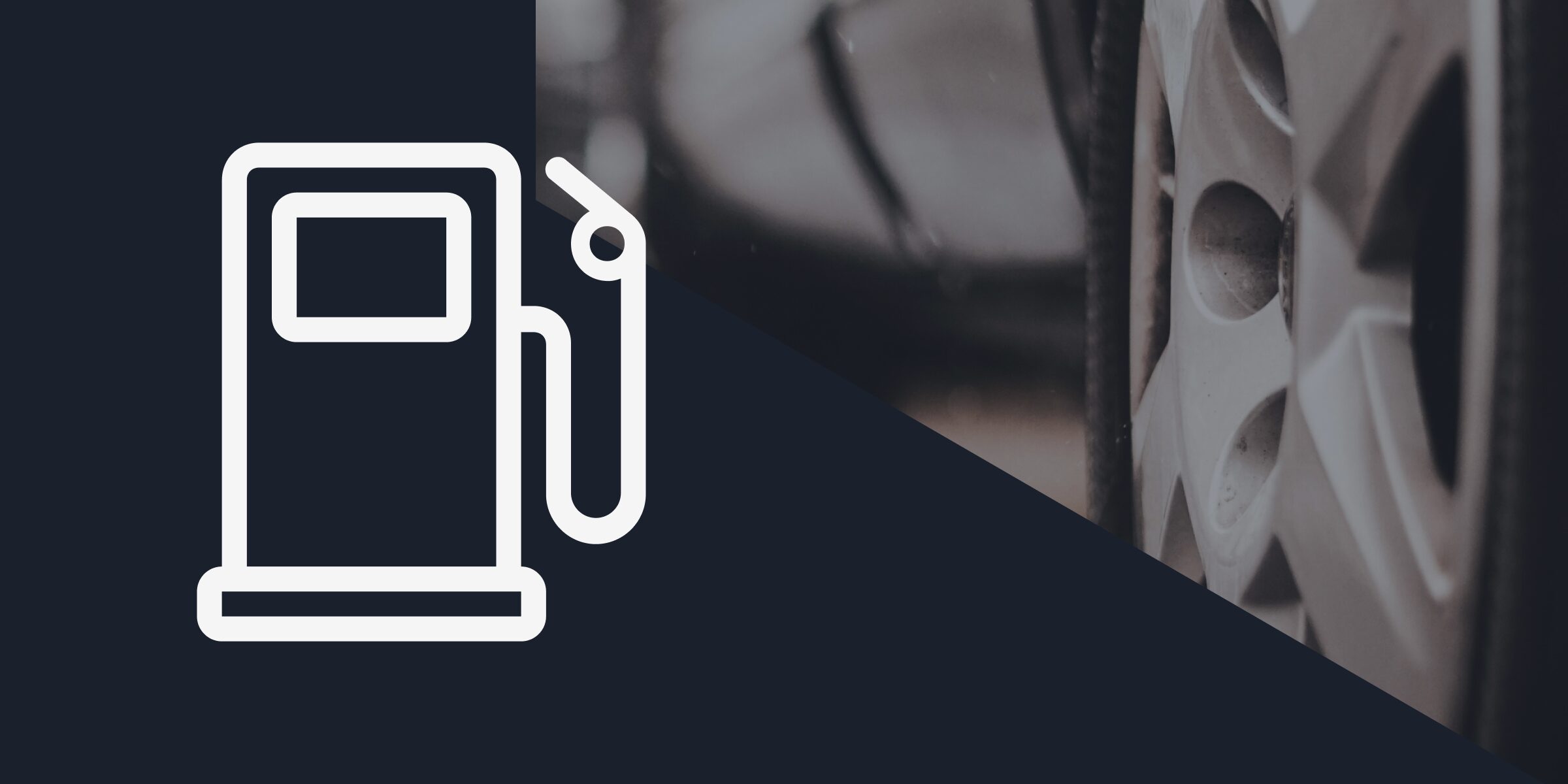
Rising gas prices nationwide can make operating vehicles in your business both challenging and expensive. In addition to maintenance, fuel accounts for a major portion of operational spend for companies that use vehicles to provide services. The good news? Finding the best fuel card, also known as a fleet card, for your business can save you money and give you control over the cost of getting from A to B.
What is a fleet card, exactly, and how is it different from a corporate credit card? And when should you choose one over the other?
In this guide, we’ll go over how businesses benefit from providing fleet cards to employees and introduce some of the best fleet fuel cards Canada has on offer—plus a few alternatives.
What is a fleet card?
Fleet cards, also known as fuel cards, enable employees to pay for the costs associated with operating a vehicle—including gas, maintenance and repairs—and forward the charge to their company as a business expense. Fleet cards can only be used for vehicle-related costs, whereas other corporate cards can be used for purchases like office supplies, software subscriptions or meals.
Fleet cards are for businesses of all sizes with employees who drive a vehicle as part of their job. This includes ride share companies and businesses that manage field workers or contractors who commute to different job sites (think plumbers, landscapers, maintenance crews and telecommunications techs). Fleet cards are a must for long-haul trucking and last-mile delivery companies that need a way for drivers to pay for fuel and maintenance while they’re on the road.
How does a fleet card work?
If you’re looking into business cards, you might be wondering: What is a fleet card used for? Can’t a corporate card do the same thing?
There are definitely similarities. Employees can use fleet cards to make fuel and vehicle maintenance purchases on the company’s tab the same way they’d pay with a company debit or credit card. Many fleet cards are a type of credit or charge card that accumulates a balance that the employer needs to pay down regularly. Some providers, like Float, also offer prepaid business credit cards for fuel.
However, modern solutions like Float are blurring the line between fleet cards and broader corporate expense management. Float’s platform gives businesses the same control and visibility as dedicated fuel cards with the added flexibility to manage all employee expenses (including fuel, maintenance, and travel) in one place. Built for Canadian businesses, Float offers customizable spend limits, real-time tracking and instant card management across both CAD and USD. With Float, finance teams can manage fleet spending alongside the rest of their operational costs, without switching between one system and another.
Learn more about Float
Get a 10-minute guided tour through our platform.
Unlike general-use business credit cards, fleet cards enable employers to set strict spending limits and restrict the types of transactions employees make—and even where they can make them.
There are two types of fleet cards:
- Closed-loop fleet cards are offered by fuel retailers and can only be used within their fuel networks. One major downside is that drivers have to go out of their way to use them at specific gas stations and truck stops.
- Open-loop fleet cards are offered by financial institutions or corporate card providers and can be used anywhere the card’s brand is accepted. Open-loop cards are often Visa or Mastercard cards.
You can assign a fleet card to an employee or a vehicle, making it easier to track the total cost of ownership (TCO) and identify any gas-guzzling lemons in your fleet. The cards also offer security features like flagging unauthorized transactions and allowing you to suspend or cancel non-compliant cards.
Fleet cards vs. corporate cards: Which is right for your business?
Both fleet cards and corporate cards can offer your business rewards, spending control and flexibility—but both may not be right for your needs. When you’re evaluating fleet cards vs. corporate cards, keep these considerations in mind.
What is the scope of your employee purchases?
Corporate cards are for general business expenses like hotels, meals and office supplies while fleet cards are for vehicle-related costs. Are your employees going to be expensing staplers and printer ink or fuel and car washes?
Are you looking for cost savings?
Let’s face it: Every business could use a discount. Some fuel card providers offer discounts or rebates based on purchase volume, while corporate cards often offer rewards and points. Decide what type of cost savings will benefit you most.
What type of reporting do you need?
Some fleet cards offer granular data regarding vehicle spending, such as vehicle ID, driver ID, odometer and fuel type, while corporate cards provide data like merchant, purchase date and employee card. Consider what type of reporting and data you need for your business expenses.
Answering these questions for your business can help you determine whether you need a fleet card or a corporate card. Keep in mind that your business may not need to choose between one or the other—some businesses will need both.
For businesses that need to manage both vehicle and non-vehicle expenses efficiently, a platform like Float can eliminate the need for separate cards entirely, offering instead full control, compliance and real-time visibility under one roof.
Benefits of fleet cards
There’s a reason fleet cards are a popular option, even with the wide availability of corporate cards.
Eliminate the reimbursement rigamarole
With a fleet card, employees don’t have to worry about gathering receipts to submit for approval or wait for reimbursement. In turn, your accounting team doesn’t have to spend time hunting down receipts or juggling payouts, making it easier to control cash flow. Now, that’s a win-win!
Give drivers autonomy without compromising on control
Using a fleet card keeps the budget under control without causing roadblocks for drivers. Fleet cards give you the best of both worlds: the ability to set spend limits and track usage while also allowing your team to fuel up when it’s convenient for them. This level of flexibility is key.
Get better insights and analytics
Top-performing fleet cards can be integrated with bookkeeping or expense management software to automatically log details like fuel grade, fuel price and location. This enables you to measure fuel efficiency and maintenance costs so you can spot opportunities for improvement.
Take advantage of savings and rewards
Many closed-loop fleet cards offer rebates or discounts on fuel, car washes, tires and mechanic services. Some also offer cash back or points programs. At Float, our corporate cards offer a stack of rewards, including 1% cashback and up to 4% interest on high-yield account balances—without the restrictions of closed-loop cards.
Best fleet fuel cards in Canada
The best fuel card will offer employees flexibility and convenience when they need to fuel up while giving you greater visibility and control over your vehicle expenses. If your employees are driving out of province or into the US, you need to consider cards that work across borders.
To help you find the card that fits your business, here’s an overview of some of the best fleet fuel card and corporate card options Canada has to offer:
Closed-loop fleet cards
- Shell Fleet Plus: One of the leading fuel cards for trucking companies in Canada. Offers discounts at Shell stations and Jiffy Lube, plus Air Miles. Includes purchase controls and reporting.
- Esso and Mobil Business Card and Premier Plus Business Card: Another leader with a wide network offering fuel cards for trucking companies in Canada. Provides volume discounts and, at the Premier Plus level, advanced performance reporting.
- Co-op Fleet Cards: A popular option for transport and agriculture companies. Can only be used at Co-op, Tempo and Western Nations Gas Bars in Western Canada.
- Circle K Pro Fleet Card: A digital fuel card for Canadian businesses used for discounts at Circle K locations. It’s a Visa card, so it can also be used at other locations—but you won’t get the same discounts as at Circle K.
- Petro‑Canada SuperPass: Accepted at every Petro‑Canada truck stop and gas station. Comes with customized reporting as well as security tools.
Open-loop fleet cards
- Shell Fleet Navigator: An open-loop Mastercard that has all the benefits of Shell Fleet Plus along with additional chip and PIN security and universal acceptance.
- BMO Fleet Card: Can be used everywhere, including Mastercard ATMs. Offers spend controls and reporting.
- Foss National Leasing Fuel Card: This open-loop-ish card is accepted at 98% of Canadian fuel retailers. The program includes tire services from Foss, which also offers vehicle leasing.
- Mastercard Corporate Fleet Card: A cost-effective option for Canadian businesses. Accepted widely and has comprehensive spend tracking and controls.
- Fillip Fleet: A dedicated fleet card accepted wherever Visa is accepted. Includes transaction logs, telematics, fuel reporting, vehicle ID tags and more.
Corporate cards for vehicle expenses from modern business finance providers
- Float: Flexible open-loop corporate card solutions, including fuel cards for small businesses in Canada. Provides built-in expense management and spend limit features, with an average 7% savings. Built for Canadian businesses.
- Keep: General-use corporate card with higher credit limits. Offers basic spend controls and expense tracking. Not available in Québec.
- Loop: General-use corporate card with no FX fees. Offers points rewards on purchases.
- Venn: General-use corporate cards that offer 1% cashback on purchases and no FX. Provides multi-currency accounts. Not available in Québec.
- Rippling: General-use corporate cards that have custom spend controls. Available across Canada excluding Québec.
What to keep in mind when choosing a fleet card
It’s clear from the above that you have options if you’re considering a fleet card. And while options are nice, too many can make it challenging to pick the right one for your business. Instead of feeling like you’re pulling a random needle out of a large haystack when choosing your card, keep these important fleet factors in mind.
- Network coverage: Closed-loop fleet cards are only accepted in certain fuel networks, while open-loop and corporate cards are accepted more widely.
- Tracking and data analysis: Fuel cards should provide tools to monitor fuel efficiency and maintenance costs. This way, you can better understand TCO and invest wisely in new vehicles moving forward.
- Tech stack integrations: Fleet cards that seamlessly integrate with your tax and accounting or business intelligence software make it easy to stay compliant and measure success.
- Expense management: The best fuel cards for trucking companies in Canada offer expense management solutions that integrate with telematics and electronic logging device (ELD) software for a holistic view of vehicle costs.
- Eligibility and fleet size: Some fleet cards require a minimum number of vehicles. Consider whether your fleet meets those specifications.
Bear in mind that some cards require you to buy a minimum volume of fuel each month to qualify for benefits like discounts and rebates. If fuel purchases aren’t a major cost for your business, choosing a general-use corporate card allows you to have the same level of control over employee purchasing without limitations around what types of expenses they can pay for with their card.
How to apply for fleet cards
Unlike business credit cards, many fleet cards on the market are issued by fuel retailers or corporate card providers, rather than traditional financial institutions. If you’ve looked into how to get a business credit card before, you might be wondering, what is a fleet card application process like?
You’re in luck. Applying for a fleet card is typically quick and easy. Here’s how.
1) Get your business info together
Applications require information like your company name, location, type, industry, registration documents and your GST/HST number.
2) Gather fleet information
You’ll need to report details like the size of your fleet, your monthly fuel and maintenance costs and your monthly fuel use.
3) Gather financial documents and check your credit score
Some providers may need to look at financial statements, proof of income and your credit score to determine the credit limits you’re eligible for. Some also require a personal guarantee or other collateral.
4) Complete your application
Many closed-loop cards and bank-issued cards require you to speak directly with a representative about your needs. Open-loop cards, especially those offered by fintechs, typically have fast online application processes. At Float, it takes just 10 minutes to apply for your corporate cards.
5) Get approved and issue your cards
With Float, you can get a 24-hour turnaround on approval. Some providers have longer approval timelines. Once you’ve been approved, you can put rubber to the road and start assigning cards to your drivers.
Managing fuel expenses in your business
According to the American Transportation Research Institute (ATRI), fuel accounts for almost a quarter of trucking companies’ operating expenses and costs an average of $22.23 USD per hour per vehicle.
Saving on fuel frees up cash in your business. Reducing fuel costs also goes hand-in-hand with lower emissions, which can help you meet climate action targets.
Here’s how you can control your fuel costs in addition to using a fleet card.
Optimize routes and loads
Use telematics solutions to find faster routes and enable drivers to proactively navigate around traffic and construction. Ensure your drivers are only carrying what’s required. Don’t let employees lug their hockey bags around in the company car—as fuel consumption increases by about 1% for every 25 kg in mid-sized cars.
Reduce idling and speeding
The average car wastes one cup of fuel every 10 minutes that it’s idling. But going fast doesn’t save you the fuel you lost idling. Going 20 km/h over the 100 km/h speed limit on the highway isn’t just a safety risk—which can lead to costly fines—it also increases fuel consumption by 20%.
Coach drivers
Habits like repeatedly hitting the brakes and speeding up can increase fuel use by up to 33%. Coasting rather than using the accelerator and brakes can also save gas. Proactively coach drivers on techniques to reduce fuel consumption and minimize wear and tear on your vehicles.
Perform preventative maintenance
Replacing air filters, changing oil and checking tire pressure on a regular basis boosts fuel efficiency and ensures your fleet is in good working order. This reduces unnecessary emergency repair expenses.
Fleet card management best practices
Whether you run a trades business or have commuter vehicles for your team, you can improve your operational efficiency with the right fleet card. But to really see the benefits, you’ve got to make sure you’re following key best practices.
Have clear card usage policies
Provide written guidelines for who the fleet card is for and what expenses are allowed on the card. It’s best to assign a fleet card to a specific employee rather than to a specific vehicle to increase accountability with your team.
Train your team
It’s not enough to just give your team your expense policy. Provide training sessions to ensure each team member understands card policies and reporting procedures. Consider offering quarterly or annual training for your team, along with a mandatory test to measure understanding.
Use fleet card controls
No one likes a micromanager, but keeping spending tight is essential to business success. Set spending and merchant limits on the card to prevent unauthorized use and overspending. This will help ensure your team stays within your budget.
Integrate with your accounting system
Integrate your fleet card with your accounting system where possible so you can automate data sharing. This helps you streamline bookkeeping and reimbursements as well as track spend data.
Fleet card security and fraud prevention
With a sharp rise in credit card fraud in Canada in 2025, it’s important for business owners to be prepared. From stolen credit cards to unauthorized purchases, there are security and fraud issues that could be coming your way. Plus, adversaries rarely look like the bandits in cartoons, so they can be hard to spot. Here are some essential card security and fraud prevention strategies to put in place.
Keep everyone informed about safety and fraud prevention
From your business partner to your team members, ensure everyone understands your card policies and credit card best practices. Specify that no one is to share credit cards or passwords, and that they must report stolen credit cards immediately. Teach your team never to leave their fleet card unattended, whether they are at work or elsewhere.
Monitor fleet card transactions in real-time
You don’t want to find out about an unauthorized purchase the next day. Opt for a fleet card that provides real-time transaction updates so you can spot anomalies right away. If you have spend controls in place, your card will stop spending outside of those restrictions. However, real-time monitoring is necessary for those grey-area purchases that might slip through the cracks.
Audit your fleet card transactions on a regular basis
To catch potential card-skimming issues, reconcile receipts and transaction data on a weekly or monthly basis. This way, you can spot unusual transactions early and address them with your team.
Deactivate cards when not in use
If an employee leaves or changes positions, deactivate their fleet card rather than giving it to another employee. This helps to keep internal security controls tight. An idle credit card is like an open tab at a bar. If it’s there, someone’s going to try to use it.
Increase reporting requirements
Ask for GPS logs, fuel receipts and mileage logs from employees so you always have a paper trail to confirm spending. This helps keep your entire team accountable to company policies.
Fleet card integration with expense management systems
If you’ve ever had to rummage through a pile of crumpled receipts and manually enter each purchase into your expense management system, you know how stressful and time-consuming it can be. And if you run a business where vehicles travel across provincial borders or into the US, you also need to file IFTA (International Fuel Tax Agreement). You’ve likely got more pressing tasks on your plate, so why not try to automate this process?
Some fleet cards and corporate cards can be integrated with expense management systems so you can automatically import transaction data with no headaches. This automation ensures your data is available for review and reporting when you need it—without the fear that you may have missed typing in a transaction or made a typo. Some expense management systems can also calculate IFTA information so your data is ready when it’s time to file.
When choosing your fleet card, make sure it integrates with your expense management system and supports automated syncing (rather than manual uploads). This ensures your data syncs in real-time so you always have up-to-date information at your fingertips.
How to choose between fleet cards and corporate cards
If you’re still going back and forth deciding between a fleet card and a corporate card, here are some important considerations to help you decide on a type of card.
Spending patterns
Does your team spend most of their time on the road with mostly fuel and maintenance expenses, or are they at the office spending on supplies and meals? Track team spending patterns to see what your biggest expense categories are.
Card acceptance and coverage
Card acceptance shouldn’t be a guessing game, especially when your team is about to run out of gas. Some fleet cards are accepted only at certain gas stations and fuel networks, while corporate cards are typically accepted everywhere. What’s most convenient for your employees?
Spending controls
Some fleet cards can limit unauthorized purchases. Certain corporate cards like Float’s have spending controls such as merchant category blocking and card pausing. Think about what types of spending controls you want on your company cards.
Rewards and discounts
You may find volume-based discounts and rebates for fleet cards. Many corporate cards also offer rewards like cashback and travel points. What’s most enticing for your team?
Data and reporting
Some fleet cards provide vehicle-level data while corporate cards like Float’s offer real-time information on spending. What level of granular data do you need from your company cards?
Evaluating the ROI of a corporate card versus a fleet card doesn’t have to be complex. In some cases, you may be better off using a corporate card as it can handle both fleet and general expenses.
Best business credit cards
Compare top options, fees and benefits for
Canadian companies.
Float for fleet management
Fuel cards are great for trucking companies or last-mile delivery companies whose drivers mostly spend money at fuel stations, truck stops and mechanics. But if you run a trades- or service-based company, provide commuter vehicles for your employees, have a broad range of travel patterns for your team or have a small number of fleet vehicles, the best fuel card for you might be a general use corporate card.
Float offers the best business credit card in Canada. Our flexible corporate cards enable you to manage all of your employee expenses, including fleet costs like fuel and maintenance, in one place. Drivers can use Float cards wherever Visa and Mastercard are accepted across Canada.
With Float, you can set the same strict spending limits that you’d expect from the best fleet fuel cards in Canada and customize those restrictions—in real time—for all the purchases your employees need to make. Float’s suite of powerful reporting features show transactions as they happen in the moment and enable you to track budgets vs. actuals over time.
Float also offers high spending limits up to $1M with no personal guarantees. With 1% cashback on spend, up to 4% interest on funds held in Float and low USD conversion fees, customers on average save up to 7% of their total spend through rewards, interest and efficiency gains.
Take control of your fuel costs with Float and discover how to make every dollar go further—on and off the road.
Written by
All the resources
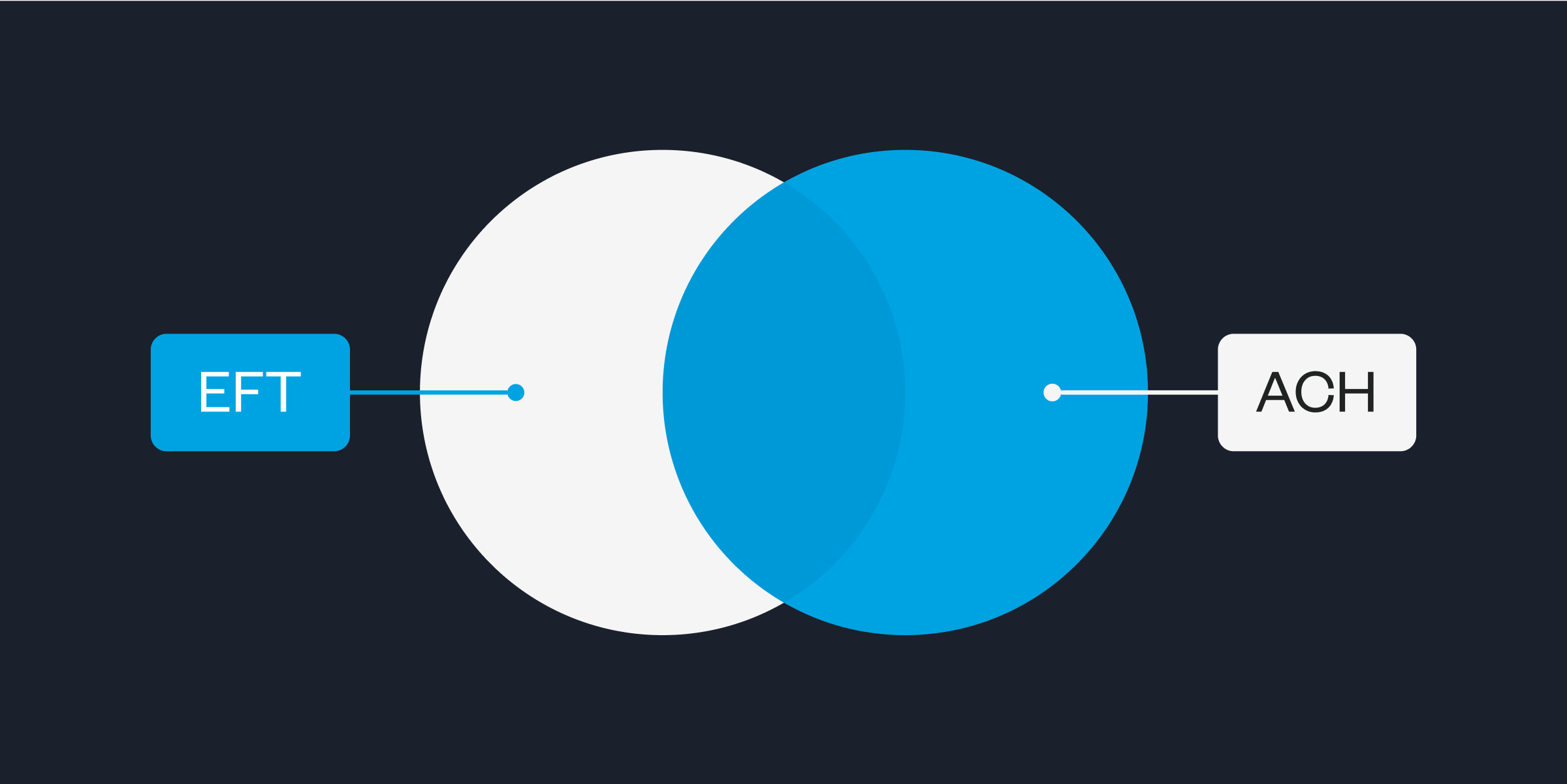
Cash Flow Optimization
ACH vs EFT Payments: Key Differences for Canadian Companies
Learn the key differences between EFT and ACH payments, how they work, which options might be available to your business
Read More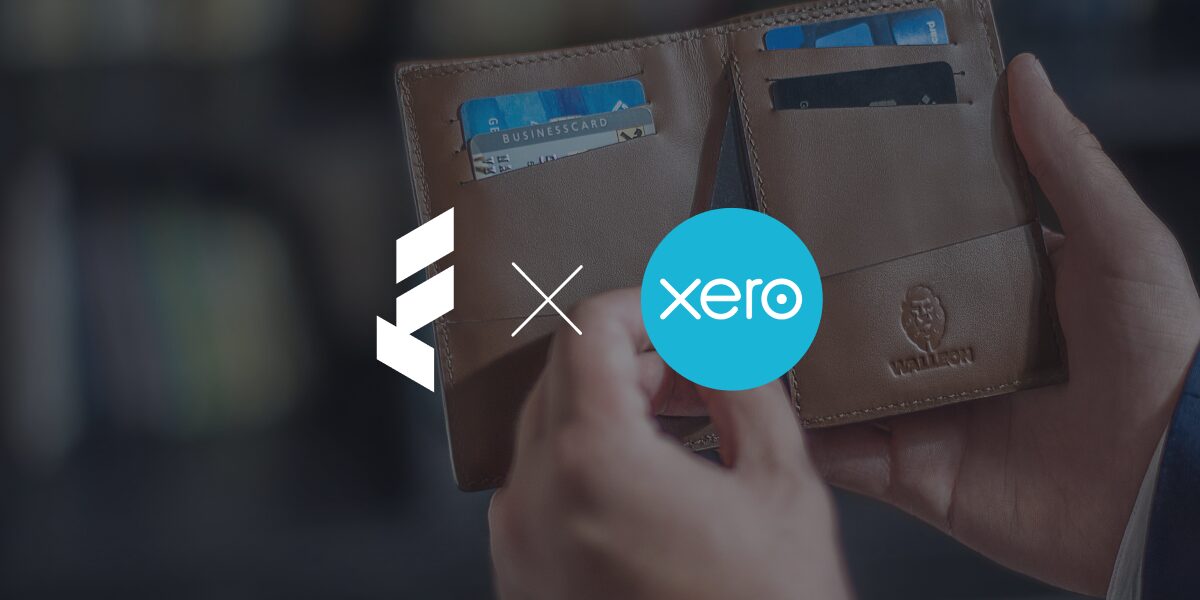
Corporate Cards
Xero Integration for Corporate Cards: Modern Accounting Software Guide
Using Xero becomes more powerful the second you integrate it with your corporate cards. Here's what you need to know.
Read More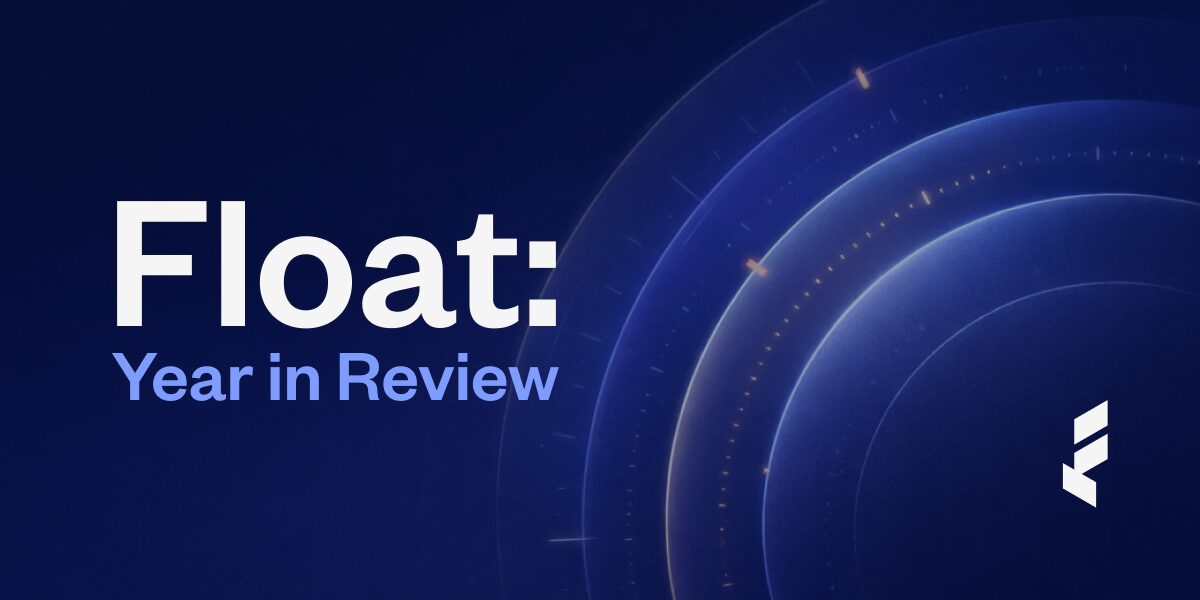
Float News
Float 2025: Year in Review
How Float is building the financial system Canadian businesses run on
Read More


